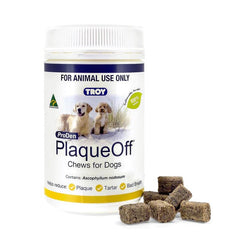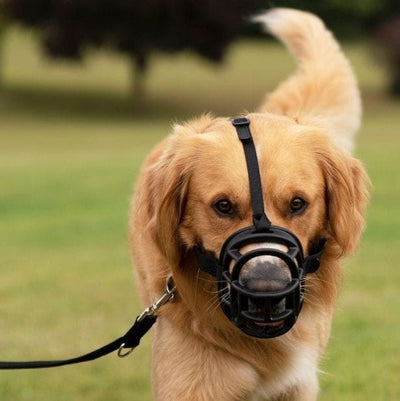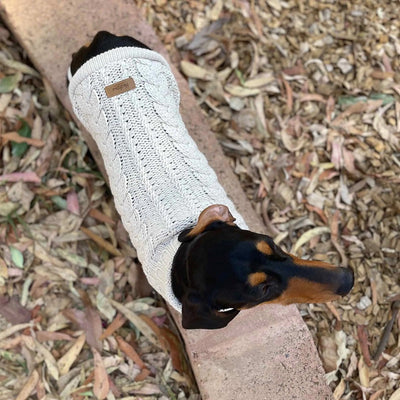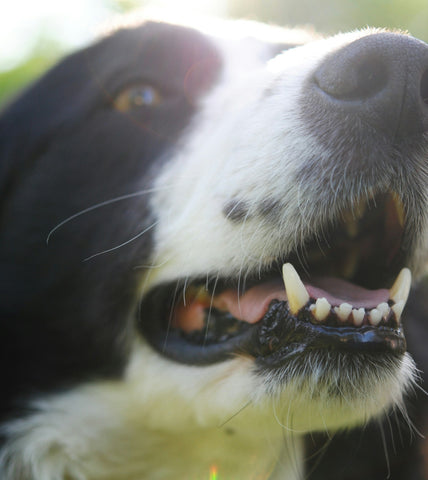
Did you know that dental health is just as important for dogs as it is for humans? A healthy smile not only keeps your furry friend's teeth strong, but it also contributes to their overall well-being. Understanding the role of bacteria, plaque, and tartar in your dog's mouth is key to maintaining their oral hygiene.
Bacteria naturally live in your dog's mouth, with some being beneficial and others harmful. However, when left unchecked, harmful bacteria can multiply and lead to the formation of plaque. Plaque is a sticky film that coats the teeth and contains bacteria, food particles, and saliva. If not removed through regular brushing or chewing, plaque hardens and turns into tartar.
Tartar is a hard, yellowish substance that can build up along the gum line, causing inflammation and gum disease. In severe cases, it can even result in tooth loss and other health problems. That's why it's essential to take proactive steps in caring for your dog's dental health.
In this article, we will discuss the role of good dental health for dogs. We'll explore the causes of oral health issues, discuss effective prevention techniques, and introduce you to some dental care products that can help keep your dog's teeth clean and their smile sparkling.
Importance of oral hygiene for dogs
Dental health is often overlooked when it comes to our furry friends, but it is just as important for dogs as it is for humans. Maintaining a healthy smile not only keeps your dog's teeth strong, but it also contributes to their overall well-being. Poor oral hygiene can lead to a variety of health issues, including gum disease, tooth decay, and even organ damage. That's why understanding the role of bacteria, plaque, and tartar in your dog's mouth is crucial in ensuring their dental health.
Understanding bacteria in a dog's mouth
Bacteria naturally live in your dog's mouth, and just like in humans, some of these bacteria are beneficial, while others can be harmful. The mouth is an ideal environment for bacteria to thrive, with warmth, moisture, and a constant supply of food particles. When your dog eats, food particles can get stuck between their teeth, providing a feast for bacteria. If left unchecked, harmful bacteria can multiply and lead to the formation of plaque.
What is plaque and how does it form in your dogs mouth?
Plaque is a sticky film that coats the teeth and contains bacteria, food particles, and saliva. It forms when the bacteria in your dog's mouth feed on the sugars and carbohydrates in their food, producing acids that can erode tooth enamel. Over time, this acidic environment creates the perfect breeding ground for more bacteria, leading to the accumulation of plaque. If not removed through regular brushing or chewing, plaque hardens and turns into tartar.
Dangers of plaque buildup in dogs
Plaque buildup in dogs can have serious consequences for their oral health. As plaque accumulates along the gum line, it can irritate and inflame the gums, leading to a condition known as gingivitis. If left untreated, gingivitis can progress to periodontitis, a more severe form of gum disease that can cause gum recession, tooth loss, and damage to the underlying bone structure. Additionally, the bacteria in plaque can enter the bloodstream and spread to other organs, potentially causing infections and damage to vital organs such as the heart, liver, and kidneys.
Tartar: the hardened form of plaque
If plaque is not removed through regular brushing or chewing, it can harden and turn into tartar. Tartar, also known as calculus, is a hard, yellowish substance that forms on the teeth, particularly along the gum line. Unlike plaque, tartar cannot be removed by regular brushing and requires professional intervention to remove. Tartar provides an ideal surface for more plaque to accumulate, exacerbating the oral health issues mentioned earlier.
Consequences of untreated tartar in dogs
Untreated tartar can have severe consequences for your dog's oral and overall health. As tartar continues to accumulate, it can cause further inflammation and gum disease. The gums may become swollen, red, and tender, and your dog may experience pain while eating or chewing. In more advanced cases, tartar buildup can lead to tooth loss, as the gums recede and the underlying bone structure weakens. Furthermore, the bacteria associated with tartar c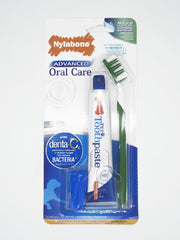 an enter the bloodstream and contribute to the development of systemic diseases, such as heart disease, kidney disease, and respiratory infections.
an enter the bloodstream and contribute to the development of systemic diseases, such as heart disease, kidney disease, and respiratory infections.
Learn more here about Effective Strategies for Preventing Dental Disease in Dogs.
Preventing bacteria, plaque, and tartar in dogs
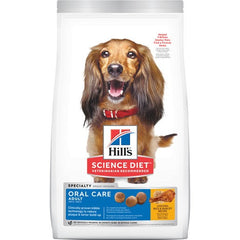 Prevention is key when it comes to maintaining your dog's dental health. By implementing a few simple practices, you can help prevent the formation of bacteria, plaque, and tartar in your dog's mouth. Regular brushing is one of the most effective ways to remove plaque and prevent tartar buildup. Use a dog-specific toothbrush and toothpaste, as human products can be harmful to dogs if ingested. Aim to brush your dog's teeth at least two to three times a week, gradually increasing the frequency as your dog becomes more accustomed to the process.
Prevention is key when it comes to maintaining your dog's dental health. By implementing a few simple practices, you can help prevent the formation of bacteria, plaque, and tartar in your dog's mouth. Regular brushing is one of the most effective ways to remove plaque and prevent tartar buildup. Use a dog-specific toothbrush and toothpaste, as human products can be harmful to dogs if ingested. Aim to brush your dog's teeth at least two to three times a week, gradually increasing the frequency as your dog becomes more accustomed to the process.
Effective dental care products for dogs
In addition to regular brushing, there are various dental care products available that can help keep your dog's teeth clean and their smile sparkling. Dental chews and treats can provide a dual benefit of satisfying your dog's natural chewing instinct while also helping to remove plaque.
Modern dental chews such as Troy Plaque Off are made from ascopyllum nodosum, a cold water seaweed that has proven results at reducing the build up of plaque and tartar in a dogs mouth.
Ascophyllum nodosum is rich in various biologically active components such as micro-elements and vitamins, among other compounds. Initial metabolomic data indicates its potential to alter the composition of canine saliva. Recent research published in Ascophyllum nodosum as a nutrient supporting oral health in dogs and cats: a review, has highlighted pet products with ascophyllum nodosum as benefiting both treatment and prevention of palque and tartar build up. The results from clinical trials involving dogs and cats indicate that Ascophyllum nodosum demonstrates its most robust preventive effects in powder, dental bites and dental formula dry food.
Regular veterinary dental cleanings for dogs
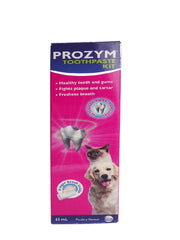 While regular at-home dental care is crucial, it is also essential to schedule regular veterinary dental cleanings for your dog. These professional cleanings involve a thorough examination of your dog's oral health, followed by a deep cleaning that removes plaque, tartar, and any potential dental issues. Your veterinarian may also perform dental X-rays to assess the health of your dog's teeth and gums. Depending on your dog's individual needs, dental cleanings may be recommended annually or more frequently for dogs with existing dental issues.
While regular at-home dental care is crucial, it is also essential to schedule regular veterinary dental cleanings for your dog. These professional cleanings involve a thorough examination of your dog's oral health, followed by a deep cleaning that removes plaque, tartar, and any potential dental issues. Your veterinarian may also perform dental X-rays to assess the health of your dog's teeth and gums. Depending on your dog's individual needs, dental cleanings may be recommended annually or more frequently for dogs with existing dental issues.
Maintaining a healthy smile for your furry friend
Understanding the role of bacteria, plaque, and tartar in your dog's mouth is essential in maintaining their oral hygiene and overall health. By implementing a regular dental care routine, including brushing, the use of dental care products, and scheduling professional veterinary cleanings, you can help prevent the formation of plaque and tartar and keep your dog's smile healthy and bright. Remember, a healthy smile for your furry friend contributes to their overall well-being, so don't forget to unleash the secrets of a healthy smile for your canine companion.
© weknowpets 2024


